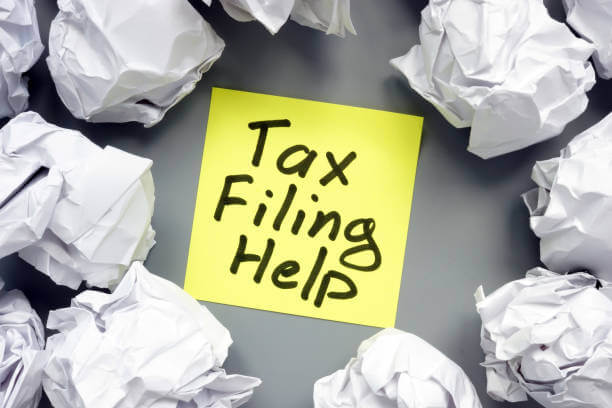The penalty for not filing a 1099 form can be significant, depending on how late the form is submitted. If filed within 30 days after the due date, the penalty is $60 per form. If filed after 30 days but by August 1, the penalty increases to $130 per form. Filing after August 1 or not at all results in a $340 penalty per form. For intentional disregard, the penalty is $680 per form with no maximum limit. To avoid these penalties, ensure timely filing and accurate information. Utilize tools like Bonsai Tax for reminders and expense tracking to stay compliant and potentially save $5,600 annually on taxes.
There are a variety of 1099 information returns but in this case, we are going to focus on the form 1099-MISC and form 1099-NEC as they are the most common forms for small businesses and solopreneurs. As with all IRS tax requirements, there are certain rules to follow for both forms and penalties associated with missed deadlines or a failure to file. The below information also assumes you provide the correct information return.
Note: If you want reminders sent to you for filing deadlines for quarterly taxes as well as tax returns, try Bonsai Tax. Our software sends you constant updates and reminders so you never miss a deadline. You'll also get access to our expense tracker to scan your bank account/credit cards to discover tax write-offs. Users save approximately $5,600 from their tax bill. Claim a 7-day free trial now.
What is Form 1099-MISC and When Does It Need to be Filed?
The 1099-MISC is used to report miscellaneous income to the IRS on a calendar year basis. A 1099-MISC must be filed for each person or non-incorporated entity which you paid at $10 in royalties or $600 for rent, medical care, and health care (among other items).
If you are playing catch-up prior-year forms 1099 filings are on your list, it is important to note that for tax years prior to 2020, this form was also used to report compensation paid to non-employees such as freelancers and independent contractors. If you compare the 2019 and 2020 forms you will notice it is entirely different. This is because beginning in 2020 the non-employee compensation is to be reported on the 1099-NEC instead of the 1099-MISC.
What is the 1099-MISC Used to Report?
In its current state, the 1099-MISC is used to report:
$10+ in royalties or broker payments (in lieu of dividends or tax-exempt interest)
$5,000+ for consumer products you sold anywhere (not including permanent retail establishments)
$600+ for all of the following:
- Rental income
- Prizes/Awards
- Income Payments
- Medical/Health care payments
- Crop insurance proceeds
- Fish sold for resale
- Cash from a notional principal contract to an individual, partnership, or estate
- Payments from clients (if you are an attorney)
- Proceeds from a fishing boat
If you earned less than $600, you still have to file for your 1099.

What Are the 1099-MISC Filing Deadlines?
There are actually two different deadlines you are required to file for the 1099-MISC and both can result in penalties.
Deadline for Providing the 1099-MISC to Recipients
The first deadline is when the 1099 must be provided to recipients. The 1099 MISC with data in boxes 8 or 10 must be provided to recipients by February 16th. The 1099-MISC with any other, and no data in box 8 or 10, be provided by January 31st (unless it falls on a weekend - then it is the next business day).
Deadline for Filing the 1099-MISC with the IRS
The second due date for form 1099-MISC is when it must be provided to the IRS. This due date will vary depending on if it is filed with the IRS via mail or if you file electronically. If you file using paper forms by mail it must be filed by February 28th. If you are filing electronically, it is due on February 28th. As with all tax forms, if the due date falls on a holiday or weekend the due date is the following business day.
What is Form 1099-NEC and When Does It Need to be Filed?
Starting with the 2020 tax year, a 1099-NEC is used to report nonemployee income which was previously reported on the 1099-MISC. This includes all income you paid to freelancers, solopreneurs, and non-incorporated businesses, such as partnerships.
What Does the IRS Consider "Nonemployee Compensation"
While the idea of nonemployee compensation seems straightforward (i.e.. all compensation paid to nonemployees) there are actually several layers of regulations that must be considered.
Layer 1 - The Four Conditions Requiring a 1099-NEC
The IRS has provided four basic conditions which require you to provide a 1099-NEC (if all four conditions are met).
- The payment is made to someone who is not your employee.
- The payment is made for services related to your trade or business.
- The payment is made to an individual, partnership, corporation, or estate.
- The total payment amount for the calendar year is more than $600.
Layer 2 - What Action Did You Take as the Payer?
There are two situations where you may be required to file a 1099-NEC even if one or more of the above conditions were not met.
- If you pay an individual at least $10 in royalties (this differs from the 1099-MISC because the "in lieu of dividends or tax-exempt interest" restriction does not apply).
- If you withheld any federal income tax under the backup withholding rules. If you did this, then the $600 threshold no longer applies.
What is the Backup Withholding Rule?
The backup withholding rule requires you to withhold tax from payments not otherwise subject to withholding. As of 2021, the backup withholding rate is 24% and applies when:
- The nonemployee provides you with an incorrect TIN in the required manner
- The IRS notifies you were provided with an incorrect TIN
- The IRS notifies you to start withholding on dividends or interest because they have been underreported on prior tax returns
- The nonemployee failed to certify they are not subject to backup withholding due to underreporting
What Types of Payments are Considered "Compensation"?
The IRS has defined the following as payments that should be considered compensation for 1099-NEC purposes.
- Fees
- Benefits
- Commissions
- Prizes and awards for services performed by a nonemployee
- Other forms of compensation for services performed for your trade or business by an individual who is not your employee
Deadline for Providing the 1099-NEC to Recipients
The first deadline is when the 1099-NEC must be provided to recipients. The simple recommendation is to provide this form as soon as possible but the latest date is January 31. If this date falls on a weekend or holiday the required date is the next business day.
Deadline for Filing the 1099-NEC with the IRS
The second due date for form 1099-NEC is when it must be provided to the IRS. Unless many other 1099 forms, the due date does not vary based on how it is filed with the Internal Revenue Service. Businesses must send this form to the IRS by January 31st, regardless of whether it is filed electronically or by mail. If this date falls on a weekend or holiday the required date is the next business day.
No Automatic Extension!
Most 1099 forms allow for an automatic 30-day extension if the extension request is filed. There is no automatic 30-day extension for the 1099-NEC. A 1099 extension may still be available under several specific hardship extensions. Extensions require an explanation and signature. They are only approved based on the circumstances outlined in Form 8809 and Form 8809 must be filed by the original due date.

What Is the Penalty for Not Filing the 1099 On Time?
There are two different types of 1099 late filing penalties based on when the 1099 is filed. Please note, these penalties assume the correct payee statement was filed and no corrections are needed. If a correction is needed there are different timelines to consider. Congress passed many new laws that drastically increased the penalties for failure to file information returns. If there is a failure to file a correct information return because of intentional disregard or needing to amend a return for correct information, the penalty is at a minimum $540 per information return with no max penalty.
Mistakes happen. If you accidentally file the wrong form, you'll need to void the 1099.
If you want to avoid late filing penalties and paying more taxes than you should, try our freelancer tax software. Our app sends you reminders, tracks your business expenses, estimates taxes and more. Claim a 14 day free trial here and see for yourself how much easier our app makes freelancing.
1099-MISC and 1099-NEC Late Filing Penalties
The amount of the penalty is based on how late the filing is and how many 1099's are filed late and the size of your business. The IRS determines penalties based on whether you are considered a small business or a large business. A small business is any business with gross receipts of $5 million or less. A large business is any business with more than $5 million in gross receipts.
It is important to keep in mind the below penalties are based on tax year 2020 IRS regulations so the amounts may increase or decrease in the following tax years based on regulatory adjustments.
Failure to File: Filing Less Than 30 Days Late
The penalty for filing form 1099 less than 30 days late or or a failure to file correctly within 30 days is $50 per form with a maximum penalty of $194,500 for small businesses.
Filing 31+ Days Late But Prior to August 1st
The penalty for filing form 1099 after the 30 day due date but by August 1st is $110 per form with a maximum penalty of $556,500 for small businesses.
Filing After August 1st
If you file after August 1 you are subject to a penalty is $270 per form with the maximum penalty of $1,113,00 0 for small businesses.

1099 Late Filing Penalties If You Do Not File at All
If you do not file your required 1099-MISC or 1099-NEC the IRS may impose additional penalties. This situation arises when the IRS determines your lack of filing is due to "intentional disregard". The IRS will catch a missing 1099.
The Internal Revenue Service notes that intentional disregard can occur when you know or should know the filing requirements but intentionally ignored them.
There are 3 criteria which must be met for the IRS to prove the intentional disregard standard.
1. You were required to file a 1099
2. You know or should have known a 1099 had to be filed
3. You ignored the duty to file the 1099 both correctly and timely
If the IRS shows you meet these standards then you are subject to a penalty of $550 per return. Unlike other penalties there is no cap on the final amount you are penalized.






